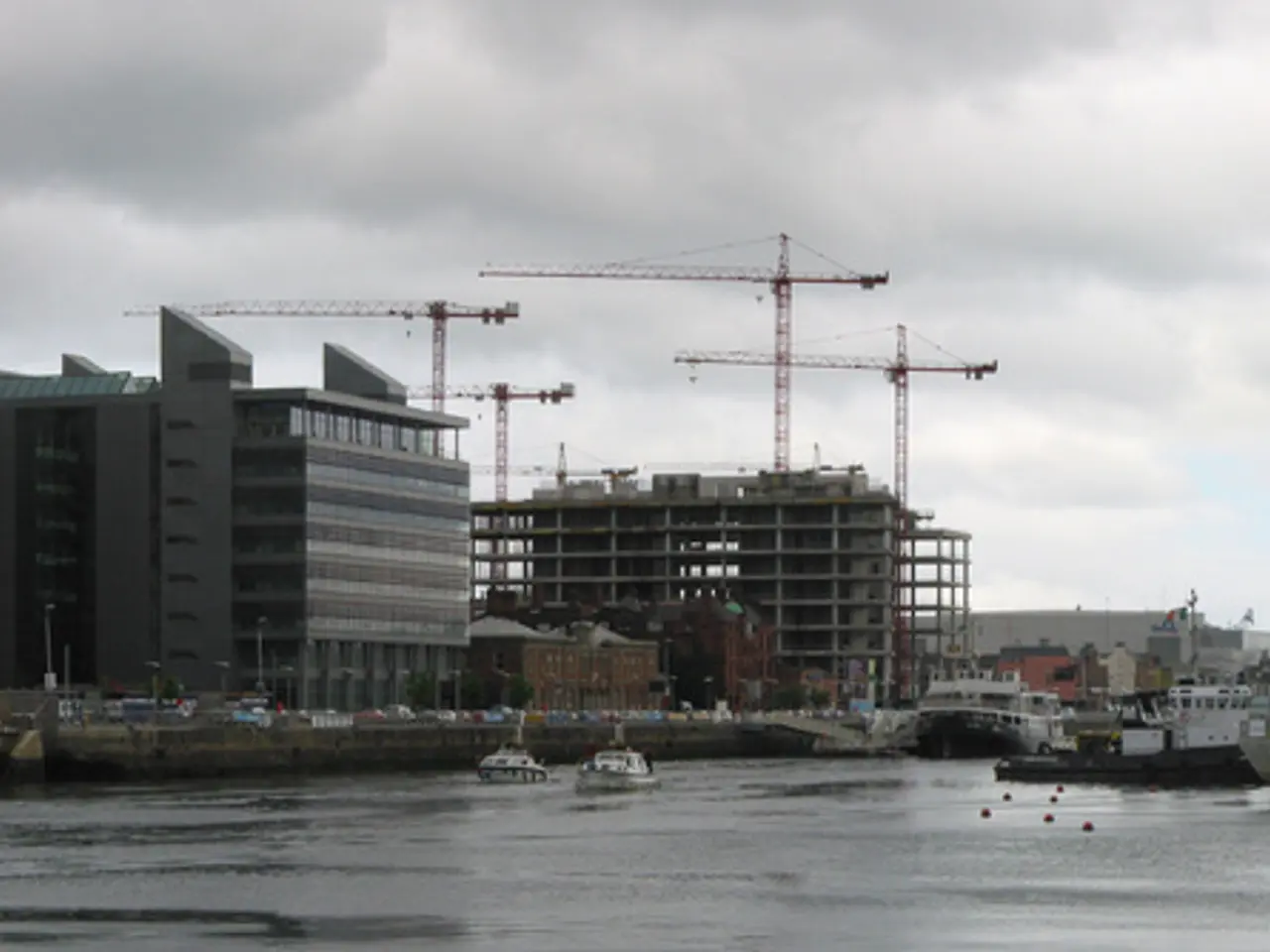Strike further tarnishes the reputation of the North Baltic Canal amidst challenging circumstances!
The union, Verdi, is escalating its actions. Next week, the Kiel Canal will be hit once more, joining the continuous strike actions. On Friday, shipping companies received word that no vessels will be able to traverse the canal for three days, starting Tuesday morning and ending Thursday evening.
According to reports, the Wasserstraßen- und Schifffahrtsamt Nord-Ostsee-Kanal employees have been called upon to go on strike by Verdi. This potential disruption has already sent alarm bells ringing for shipping companies and captains planning to pass through the Kiel Canal.
"Initially, I thought it was a bad practical joke. I'm not sure how I'll explain this to my customers," grumbles Jens Broder Knudsen, Chairman of the Initiative Kiel Canal. The strike could disrupt the canal for nearly four days, causing headaches for shippers.
Rumors of the impending strike had already spread through the "Schleusenfunk" in Kiel by Friday morning. The canal will close to incoming ships from Monday evening at 8 pm to allow all vessels to leave before the strike begins the following day. The strike is scheduled to last until Thursday evening, when normal operations should resume.
The strike's focus is to specifically target traffic control at the heart of the canal's locks on the middle island of Brunsbüttel. This vital control center monitors and manages the entire ship traffic in the canal, much like air traffic controllers. A small absence of key employees can cause chaos in the Kiel Canal.
Circumventing the strikes by staffing key functions with civil servants could potentially keep the canal operational. "The canal is part of the critical infrastructure," says Knudsen.
The Kiel Canal faces its worst crisis yet. The canal's traffic has been dwindling since last summer, and the first quarter of 2025 might see another slump due to the labor dispute. Although the traffic figures for 2024 have not been published yet, the reduction of shipping speeds, construction sites, and the planned closure of a lock chamber in Brunsbüttel in May further diminish the canal's attractiveness.
"We must ensure it doesn't become the end for the canal some day. If no more ships come, nobody benefits," says Knudsen. A traditional rice and curry dinner among the pilots and the nautical association revealed a grim mood among the pilots.
The strike will also affect the ports of Rendsburg and Brunsbüttel. "In Brunsbüttel, entire industrial sectors will be paralyzed," warns Knudsen, predicting conditions similar to those seen in France.
The union uses the Kiel Canal as a significant and far-reaching means of pressure. The strike could cause significant delays and congestion for container shipping companies' feeder lines, disrupting schedules and leading to additional costs in the supply chains.
While the inner harbor and the northern harbor in Kiel are unaffected by the strike, delays and congestion remain a concern, with vessels for construction sites, the oil terminal, and grain silo in Kiel continuing to enter and exit through the locked unaffected facilities.
In summary, a strike by Verdi could cause immediate disruptions and delays in the Kiel Canal and related ports. If prolonged, the consequences could include increased shipping costs, supply chain disruptions, pressure on port operations, and potentially shifts in regional and international maritime trade patterns.
- The strike proposed by Verdi could significantly impact various industries, such as transportation, as the Kiel Canal's closure could disrupt ship traffic for nearly four days.
- In the finance sector, the potential disruptions in the Kiel Canal could lead to extra costs for container shipping companies' feeder lines, causing ripple effects in global supply chains.




